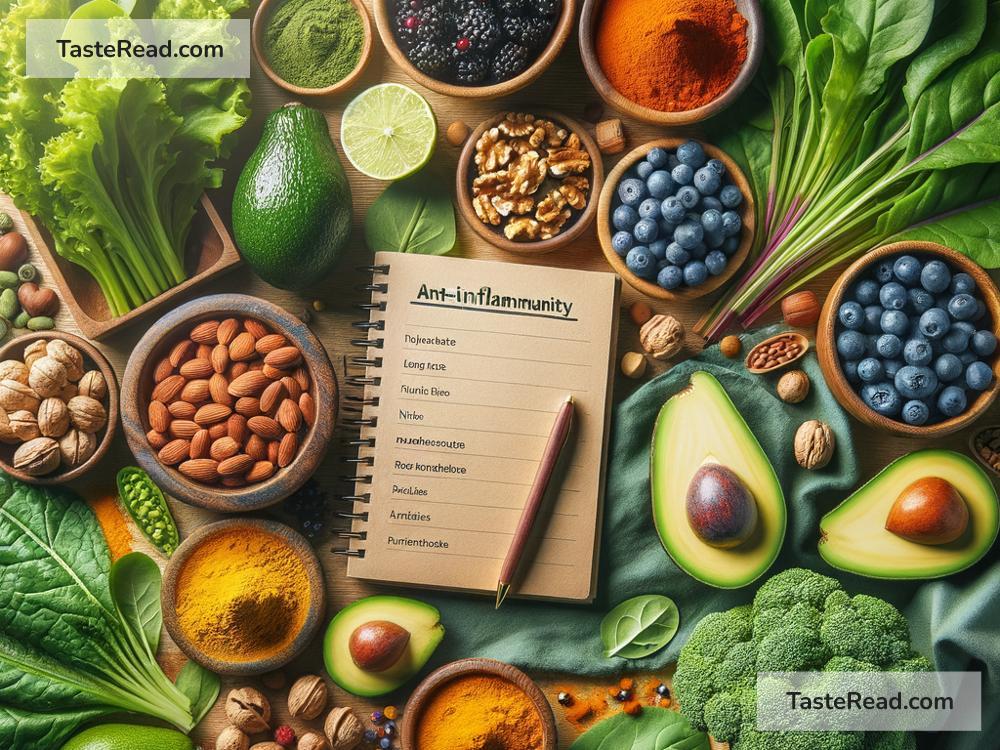The Role of Nutrition in Preventing Inflammation
Inflammation is the body’s way of protecting itself from harm. When you get a cut or catch an infection, your body releases chemicals to fight off invaders and help you heal. This kind of inflammation, called “acute inflammation,” is necessary and helpful. However, there’s another kind of inflammation that is less noticeable but can cause big problems over time. It is called “chronic inflammation,” and it happens when your body stays in a state of constant alert, even when there’s no clear danger.
Chronic inflammation has been linked to many diseases, including diabetes, heart disease, arthritis, and even cancer. But the good news is that your diet can play a major role in keeping inflammation under control and protecting your health. In this article, we’ll take a closer look at how nutrition affects inflammation and explore simple ways to use food as medicine.
What is Inflammation?
Before diving into nutrition, let’s understand inflammation a little better. Acute inflammation happens when your immune system springs into action to heal an injury or fight an infection. You might notice redness, swelling, or pain, but it usually goes away quickly once the body has done its job.
Chronic inflammation, on the other hand, often goes unnoticed because it doesn’t cause immediate symptoms. It occurs when your immune system continues to react even though there’s no injury or infection to deal with. Over time, this prolonged state of inflammation can damage healthy cells and lead to disease.
Food as Fuel for Your Body
The foods you eat can directly impact inflammation. Some foods help reduce inflammation, while others can make it worse. Choosing the right kinds of food can act like fuel for your body, helping it stay strong and healthy.
Foods That Fight Inflammation
Certain foods are packed with nutrients that can help your body fight inflammation. Here are some of the top anti-inflammatory foods you should include in your diet:
1. Fruits and Vegetables
Leafy greens like spinach and kale, colorful fruits like berries, oranges, and cherries—all of these are rich in antioxidants. Antioxidants protect your cells from damage and help to keep inflammation in check. Aim to eat a variety of colors to get all the different nutrients your body needs.
2. Healthy Fats
Not all fats are bad for you! Healthy fats, like those found in avocados, nuts, seeds, and olive oil, can actually reduce inflammation. Omega-3 fatty acids, found in fatty fish like salmon and mackerel, are especially good for calming inflammation.
3. Whole Grains
Unlike refined grains (found in white bread and pastries), whole grains are packed with fiber. Fiber helps your gut stay healthy, which is important because a healthy gut plays a big role in controlling inflammation. Choose options like oatmeal, brown rice, quinoa, and whole-wheat bread.
4. Herbs and Spices
Certain herbs and spices, such as turmeric, ginger, and garlic, have natural anti-inflammatory properties. Turmeric contains a compound called curcumin, which has been widely studied for its ability to reduce inflammation.
5. Green Tea
Green tea is loaded with antioxidants called catechins, which are known to fight inflammation. Drinking green tea regularly is a simple way to support your health.
Foods to Avoid
Just as some foods can reduce inflammation, others can trigger or worsen it. Here are some of the key culprits:
1. Refined Sugars
Sugary drinks, candies, and baked goods with added sugar can contribute to inflammation. They cause blood sugar spikes, which lead to the release of chemicals that promote inflammation.
2. Processed Foods
Foods that come in packages, such as chips, frozen meals, and fast food, are often high in unhealthy fats, sodium, and additives that can fuel inflammation.
3. Trans Fats
Trans fats, found in fried foods and certain baked goods, are particularly harmful and have been shown to increase inflammation and raise the risk of heart disease.
4. Alcohol
Drinking too much alcohol can also trigger inflammation. Moderation is key—enjoy a small amount but avoid excess consumption.
Tips for an Anti-Inflammatory Diet
If you want to lower your inflammation through nutrition, start by making small, manageable changes. Here are a few tips to get you started:
- Eat a Rainbow: Try to include fruits and vegetables of different colors in your meals. Each color offers a unique set of nutrients.
- Cook at Home: Preparing meals at home lets you control what goes into your food. Choose fresh ingredients and use herbs and spices for flavor.
- Choose Whole Foods: Whole, unprocessed foods are your best bet for fighting inflammation. Aim for less packaged products and more fresh produce.
- Limit Sugar: Swap sugary snacks for healthier options like fruit or a handful of nuts.
- Drink Water: Staying hydrated helps your body function properly and can reduce inflammation. Skip sugary drinks in favor of water, herbal tea, or green tea.
A Balanced Approach to Health
It’s important to remember that no single food can prevent inflammation on its own. Instead, focus on creating a balanced diet that includes a variety of anti-inflammatory foods. Also, remember that other lifestyle factors—such as regular exercise, stress management, and getting enough sleep—play a role in reducing inflammation too.
Taking steps to improve your diet can have a huge impact on your overall health. By choosing foods that fight inflammation and avoiding those that worsen it, you’ll be giving your body the tools it needs to stay healthy and strong.
In conclusion, nutrition plays a powerful role in preventing inflammation. By making smart food choices, you can protect your body from chronic diseases and feel your best every day. Start small, be consistent, and remember that every bite you take is a step toward better health!


